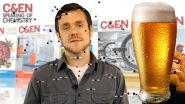(Press-News.org) People's views on income inequality and wealth distribution may have little to do with how much money they have in the bank and a lot to do with how wealthy they feel in comparison to their friends and neighbors, according to new findings published in Psychological Science, a journal of the Association for Psychological Science.
"Our research shows that subjective feelings of wealth or poverty motivate people's attitudes toward redistribution, quite independently of objective self-interest," says psychological scientist and study co-author Keith Payne of the University of North Carolina.
The research reveals that feeling relatively wealthy not only led participants to oppose redistribution, it led them to view anyone who disagreed as blinded by self-interest.
"These findings are important because they suggest a mechanism by which inequality may lead to increases in political polarization and conflict," Payne explains. "Peoples' support for tax and welfare policies depends on how well off each person feels at that moment."
While it seems logical that people would support whichever wealth distribution policy enhances their own bottom line, research consistently shows that the association between actual household income and attitudes toward redistribution is weak. Lead author Jazmin Brown-Iannuzzi of the University of North Carolina, Payne, and colleagues speculated that perceived socioeconomic status, how people judge their status relative to those around them, might be the more influential factor.
Indeed, an online survey of adults revealed that the more well-off people felt relative to most people in the US, the less supportive they were of policies that involved redistribution of income from the wealthy to the poor. Importantly, support for redistribution wasn't related to participants' actual household income or level of education.
And the results from a second online study provided further experimental support for the link. Participants who were given feedback suggesting they had more discretionary income than "similar" peers showed less support for redistribution and reported being more politically conservative (less liberal) than those who were told they were worse off than their peers.
In two additional experiments, participants were induced to feel wealthy or poor according to their performance in an investing game. Some performed "better than 89% of all players," watching their assets rise and then dip by 20% due to income redistribution. Others performed "worse than 89% of all players," seeing their assets dip before receiving a bonus through redistribution.
When asked how they might improve the rules for future participants, the "poor" players seemed to be satisfied with the existing rules, while the "wealthy" players preferred significantly less redistribution.
And the players' perceived status seemed to affect their broader political views. "Wealthy" players viewed inequality in the game, and the American economic system as a whole, as more fair than did "poor" players. And they viewed those who recommended increasing redistribution as more biased.
"When people were made to feel wealthier, they not only opposed redistribution but they also began endorsing more conservative principles and ideologies in general," says Payne. "They began to see the world as a fair and just meritocracy. And this was all the result of a simple five minute manipulation of relative comparisons to others."
These findings suggest that feelings of subjective wealth drive people's attitudes toward redistributive policies, and that they shift to ideological positions that justify these attitudes. Thus, the social comparisons we make on a daily basis may end up having consequences for our political preferences.
INFORMATION:
Study co-authors include Kristjen B. Lundberg and B. Keith Payne of the University of North Carolina and Aaron C. Kay of Duke University.
This research was supported by the Russell Sage Foundation (Grant 83-13-06).
For more information about this study, please contact: Jazmin L. Brown-Iannuzzi at jazminb@live.unc.edu.
The article abstract is available online: http://pss.sagepub.com/content/early/2014/11/21/0956797614553947.abstract
The APS journal Psychological Science is the highest ranked empirical journal in psychology. For a copy of the article "Subjective Status Shapes Political Preferences" and access to other Psychological Science research findings, please contact Anna Mikulak at 202-293-9300 or amikulak@psychologicalscience.org.
WASHINGTON, Nov. 25, 2014 -- Your beer may attract annoying fruit flies, but listen up before you give them a swat. Researchers found the yeast cells in beer are producing odor compounds -- acetate esters -- that lure flies and that could lead to the best beer you haven't even tasted yet. This week's Speaking of Chemistry explains why. Check it out at http://youtu.be/HQNlGuZvCvA.
Speaking of Chemistry is a production of Chemical & Engineering News, a weekly magazine of the American Chemical Society. The program features fascinating, weird and otherwise interesting chemistry ...
Bitcoin is the new money: minted and exchanged on the Internet. Faster and cheaper than a bank, the service is attracting attention from all over the world. But a big question remains: are the transactions really anonymous? Several research groups worldwide have shown that it is possible to find out which transactions belong together, even if the client uses different pseudonyms. However it was not clear if it is also possible to reveal the IP address behind each transaction. This has changed: researchers at the University of Luxembourg have now demonstrated how this is ...
The study at Sahlgrenska Academy, University of Gothenburg, was based on the Swedish National Epilepsy Surgery Register, which includes all cases since 1990. The researchers reviewed data for the 865 patients who were operated on at Sweden's six epilepsy surgery clinics from 1996 to 2010.
The purpose of surgery is to enable a person with severe epilepsy to be free of seizures or to reduce their frequency to the point that (s)he can enjoy better quality of life.
Downward trend
Only 3% (25) of the patients suffered lasting complications. A comparison with a previous ...
Researchers at KU Leuven's Centre for Surface Chemistry and Catalysis have successfully converted sawdust into building blocks for gasoline. Using a new chemical process, they were able to convert the cellulose in sawdust into hydrocarbon chains. These hydrocarbons can be used as an additive in gasoline, or as a component in plastics. The researchers reported their findings in the journal Energy & Environmental Science.
Cellulose is the main substance in plant matter and is present in all non-edible plant parts of wood, straw, grass, cotton and old paper. "At the molecular ...
Results presented November 19 by University of Colorado Cancer Center investigator Daniel Pollyea, MD, MS, at the 26th European Organisation for Research and Treatment of Cancer Symposium in Barcelona show "extremely promising" early phase 1 clinical trial results for the investigational drug AG-120 against the subset of patients with acute myeloid leukemia (AML) harboring mutations in the gene IDH1. The finding builds on phase 1 results of a related drug, AG-221, against IDH2 mutations, presented at the most recent meeting of the American Association for Cancer Research. ...
After mining the genetic records of thousands of breast cancer patients, researchers from the Johns Hopkins Kimmel Cancer Center have identified a gene whose presence may explain why some breast cancers are resistant to tamoxifen, a widely used hormone treatment generally used after surgery, radiation and other chemotherapy.
The gene, called MACROD2, might also be useful in screening for some aggressive forms of breast cancers, and, someday, offering a new target for therapy, says Ben Ho Park, M.D., Ph.D., an associate professor of oncology in the Kimmel Cancer Center's ...
A new expert panel report, Policing Canada in the 21st Century: New Policing for New Challenges, released today by the Council of Canadian Academies, details the complexity and global nature of policing in the modern age. Overall, a 12-member Expert Panel determined that safety and security cannot just rest with Canada's policing services. Specialists, public and private security services, and other first responders all have a vital role to play in an interconnected safety and security web. This transition has already begun in Canada and around the world. A central challenge ...
The treatment of people who cannot keep their gambling habits in check is often complicated because they also tend to suffer from personality disorders. So says Meredith Brown of Monash University in Australia, in a review in Springer's Journal of Gambling Studies.
Problem gambling creates a multitude of intrapersonal, interpersonal and social difficulties for the roughly 2.3 percent of the population internationally that suffers from this behavior. Previous research has shown that people with gambling problems suffer from a range of psychiatric disorders affecting their ...
Genes make proteins and proteins tell your body's cells what to do: one talks to the next, which talks to the next, and to the next. Like a game of telephone, researchers call these "signaling pathways". Abnormalities in these signaling pathways can cause the growth and survival of cancer cells. Commonly, mutations or rearrangements of genes in the MAPK signaling pathway create cancer's fast growth, and alterations in the PI3K signaling pathway allow cancer cells to survive into virtual immortality.
Of course, researchers have extensively targeted these two signaling ...
FRANKFURT/GIESSEN. Healthy cells reduce their growth when there is a lack of oxygen (hypoxia). This makes it even more surprising that hypoxia is a characteristic feature of malignant tumours. In two publications in the current edition of the "Nature Communications" journal, researchers from Goethe University and Justus-Liebig-University of Giessen report on how cancer cells succeed at circumventing the genetic program of growth inhibition.
It has long been known that PHD proteins (prolyl-hydroxylase domain proteins) play a key role among the regulators of hypoxia. They ...


